Please visit our Dublin 2024 event slide page to download the slides.
Plenary 1: Building the evidence for support for life after stroke
Monday 11th March 09.30-10.45
Overview
Building on the “A Life Saved is a Life Worth Living” report, this session presents current evidence and research about supporting people and their families to live well after a stroke. The session will also highlight key gaps in the evidence base and identify priorities for more funding, more lobbying and more evidence.
What kind of evidence is really important? A personal perspective
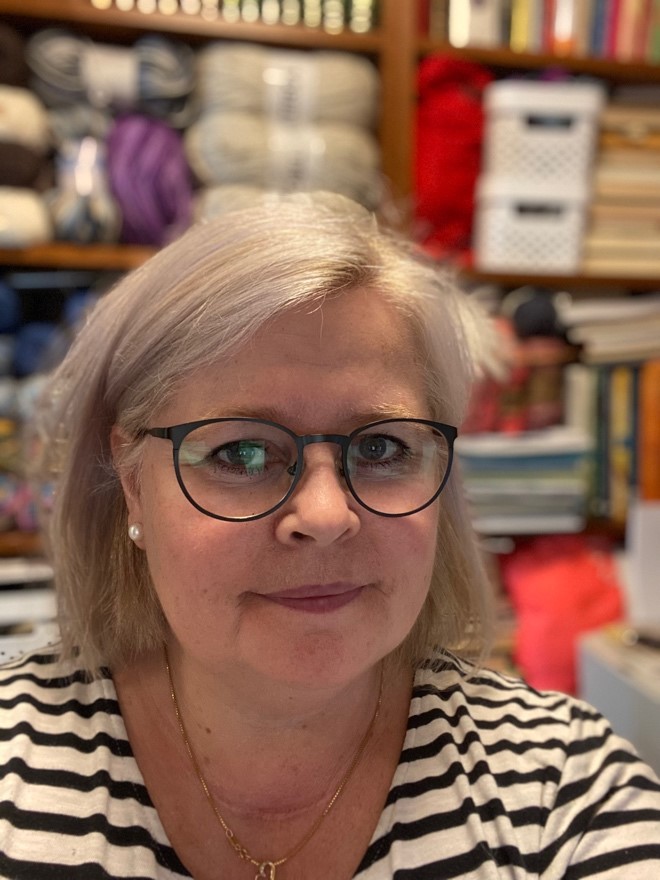
Stroke Survivor, Norway

Grethe Lunde
Stroke Survivor, Norway
Grethe Lunde, 51, is a former board member (now honorary member) of the Stroke Alliance for Europe (SAFE) and is also member of the Steering Committee for implementing the Stroke Action Plan for Europe 2018-2030. As a new member of the European Life After Stroke Forum Scientific Committee, she hopes to bring her nearly 30 yearlong stroke survivor experience to the good for other stroke survivors and their loved ones. Even professionals. She has also since being a part of SAFE had several “personal” presentations at the EU parliament and numerous online talks about how she is coping with life after stroke.
She had a severe and lifechanging cerebral sinus venous thrombosis (CVTS) on her 22nd birthday and woke up from an induced coma totally paralysed. Luckily, she was sent to a rehabilitation hospital where she could relearn necessary skills that were lost that day in February in 1994. She had to start over on several levels and had to relearn how to speak, read, type, write – and most importantly she had to learn how to sit, stand and walk again. Motto; A saved life should be a life worth living – and if anything else doesn’t seem to work – SMILE.
Mapping the evidence base for life after stroke: A research perspective
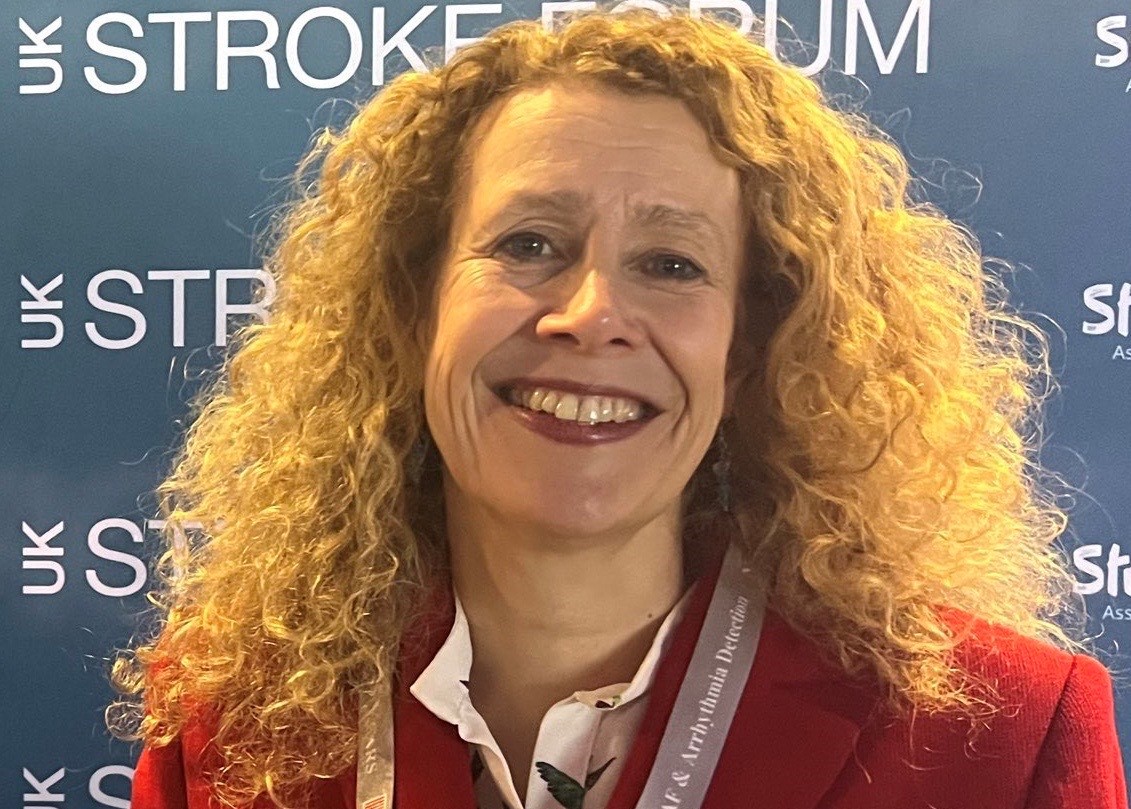
Professor of Clinical Trials and Evaluation of Complex Interventions, University of Leeds

Amanda Farrin
Professor of Clinical Trials and Evaluation of Complex Interventions, University of Leeds
Amanda is a statistician and trialist and currently Professor of Clinical Trials and Evaluation of Complex Interventions at the University of Leeds. Her research includes large-scale stroke rehabilitation trials and she is currently developing the first UK-wide platform trial to test multiple interventions to help people after stroke.
How can we use research evidence to improve life after stroke: A clinical perspective
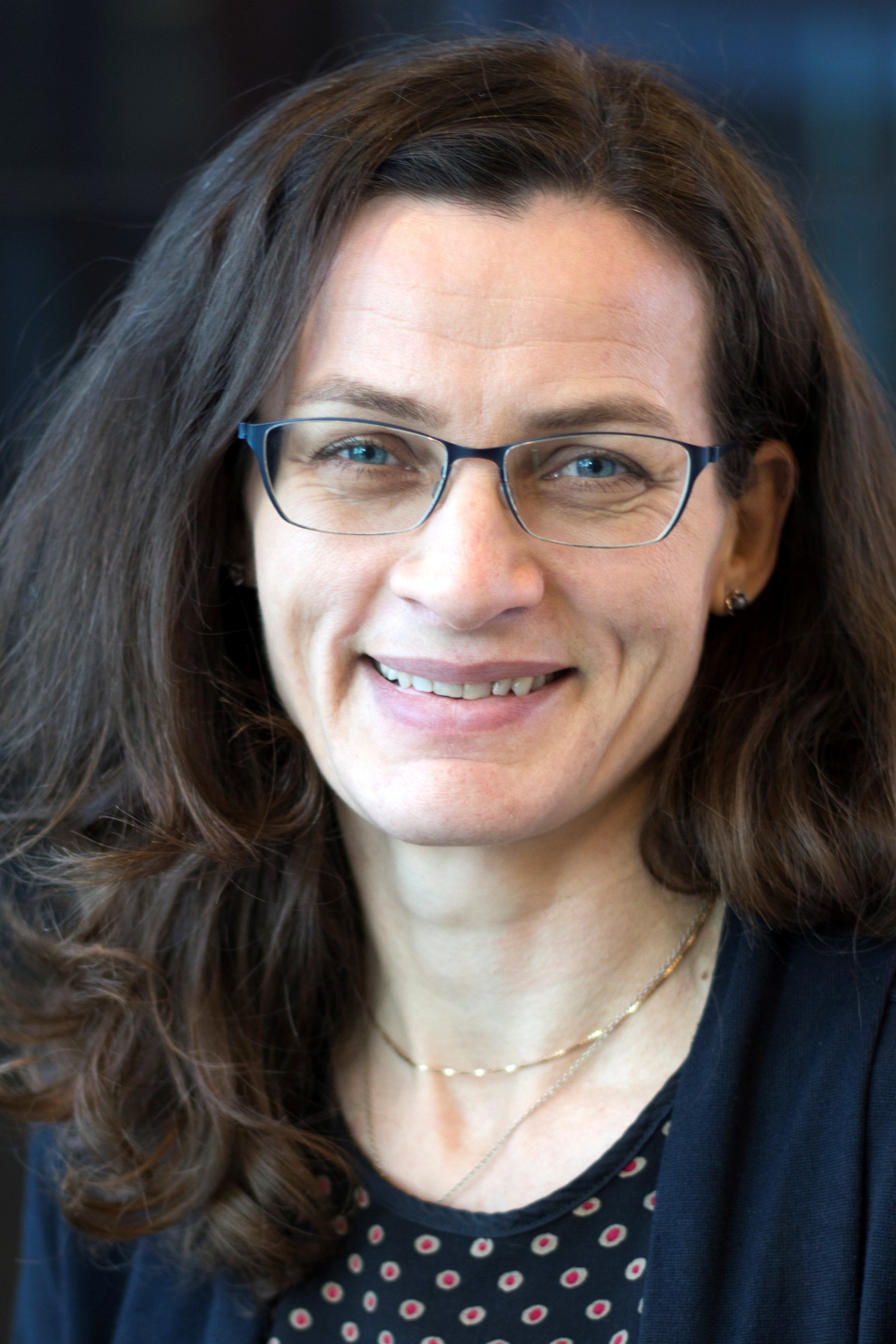
Associate Professor Margit Alt Murphy
University of Gothenburg, Sweden

Associate Professor Margit Alt Murphy
University of Gothenburg, Sweden
Margit alt Murphy is an Associate professor at Institute of Neuroscience and Physiology at University of Gothenburg and Senior Consultant Physiotherapist at Sahlgrenska University Hospital, leading researcher in the field of stroke rehabilitation and upper extremity assessment including kinematic movement analysis and rehabilitation.
Overview
This session will focus on the different perspectives of what a good life after stroke’ looks like through discussion and presentations around different experiences and good practice from different countries.
Perspectives from Europe
Videos from people with lived experience from around Europe: ‘After you left hospital what non-medical support did you find most helpful to help you live a good life after stroke?’
Video of European stroke survivors
Perspectives from support organisations
What types of support have made the most difference to people’s lives and what have been the most successful strategies?

Stiftung Deutsche Schlaganfall-Hilfe, Germany

Dr Michael Brinkmeier
Stiftung Deutsche Schlaganfall-Hilfe, Germany
Having a Ph.D. in physics Michael Brinkmeier did research work at Max Planck Göttingen and Karolinska Institute Stockholm. Following that, he worked for McKinsey&Co. as a management consultant.
From 2000 to 2012 he was Member of Parliament (CDU) for the state of NRW, being responsible for science and innovation politics.
In 2012 he returned as a management consultant (Accenture) before becoming the Chair of German Stroke foundation in 2013, striving to improve quality of stroke care.
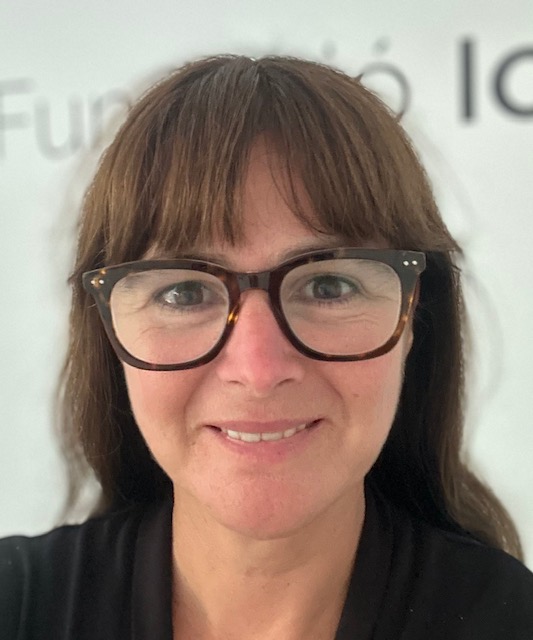
Fundacio Ictus, Catalonia

Mercé Ayesta
Fundacio Ictus, Catalonia
Mercè Ayesta Borras coordinates the Stroke Foundation in Catalonia. She is a registered nurse and has a graduate degree in Humanities and Arts from UAB (University Barcelona). Her postgraduate specialization was in ICU care, teaching and stroke care. She is now studying a master’s degree in digital health.
Before she became a full-time coordinator at the Stroke Foundation in 2018, she worked at the Catalan Stroke Action Plan coordinating the 5th Stroke Audit and became a lecturer of the Stroke Specialization Course for Nurses. She collaborates in different research groups focused on stroke care, awareness and life after stroke. She is also a member of the Cerebrovascular Diseases Working Group of the Department of Health of the government of Catalonia, member of SAFE and recently has become a member of the Stroke Action Plan for Europe (SAPE).
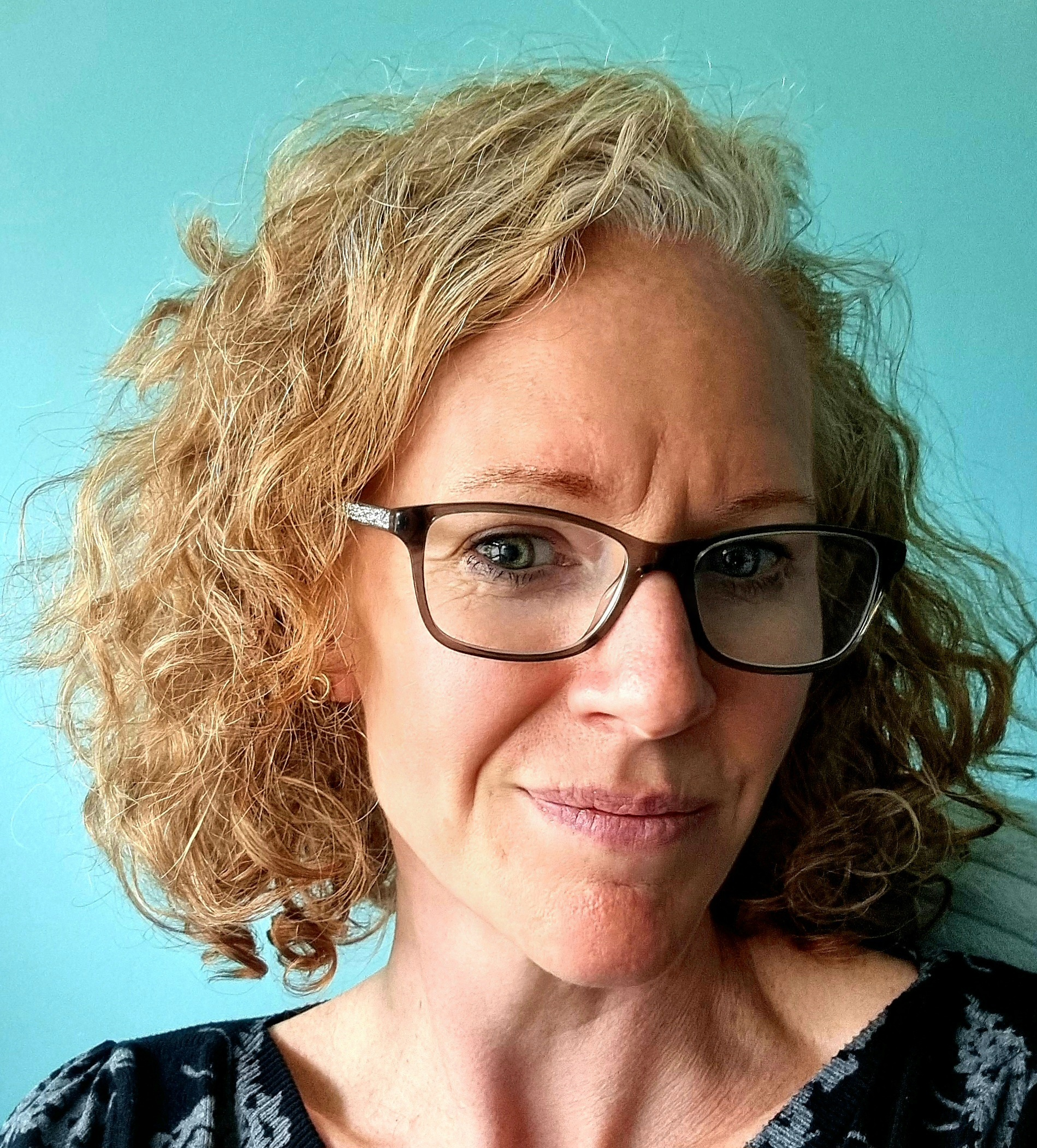
Associate Director of Services at the Stroke Association

Katherine Staley
Associate Director of Services at the Stroke Association
Katherine Staley is the Associate Director of Services at the Stroke Association. She leads a team providing and coordinating support to people affected by stroke, through a range of different products. These are available to people in their local areas through services such as the Stroke Recovery Service and nationally through different forms of remote provision, including the Support Line, telephone peer support and online activities.
Katherine has had a long and happy career at the Stroke Association working in many different areas and roles, starting off providing direct support to people with aphasia. Prior to this she worked in a Psychology research role at Manchester University focused on language in stroke and dementia.
Plenary 3: A showcase of life after stroke support in Ireland
Tuesday 12th March 11.15-12.30
Overview
In this session, we will discuss how we developed a support service in Ireland to meet the unmet need of those affected by stroke, the challenges and opportunities we face, and we will share top tips on how to set this service up in your country.
The Stroke Connect Service - Filling the gap for support post discharge in Ireland

Irish Heart Foundation, Ireland

Helen Gaynor
Irish Heart Foundation, Ireland
My journey through the Stroke Connect Service and beyond

Stroke Survivor, Ireland

Fiona Bardon
Stroke Survivor, Ireland
Fiona had a stroke in August of 2019, at the age of 33, just days before she was due to move from Ireland to start a new teaching job in Dubai. Her experience includes:
- Advocacy: Addressed The Oireachtas on post-hospitalization challenges for stroke survivors in Ireland.
- Media Presence: Featured on radio, authored articles in Irish publications.
- Conference & Panels: Presented at S.A.F.E. conference, participated in a panel on “Discussing Disabilities.”
- Committee Role: Patient Representative on the Community Paramedic Standards Development Committee.
- Young Stroke Survivor Rep: Represents Young Stroke Survivors on Irish Heart Foundation’s Patient Panel.
- Recognition: Graduated as Patient Champion, won awards at Irish Heart Foundation’s National Volunteer Conference in November 2023.
Being a stroke survivor has changed her life completely and as with all experiences in life, there are good and bad elements to it. She is very passionate about advocating for better services for stroke survivors post-discharge from hospital. In sharing her story Fiona hopes to provide support for other stroke survivors as well as raise awareness among medical professionals and the general public of the hidden difficulties stroke survivors face on a day-to-day basis.
Meeting the unmet need for information on stroke for children and young people (CYP) - The CHATS booklet

Tallaght University Hospital

Wendy Moynan
Tallaght University Hospital
Wendy is a Social Work Team Leader in Tallaght University Hospital, Dublin. She has worked in acute and rehabilitation services in a variety of clinical areas in both Ireland and Australia. She has extensive experience of working with stroke survivors and their families. She has a particular interest in the emotional impact of stroke and how support needs can best be met. Alongside Dr Áine Connolly, Principal Clinical Neuropsychologist, she has developed the CHATS resource to help adults talk to and support children after stroke.
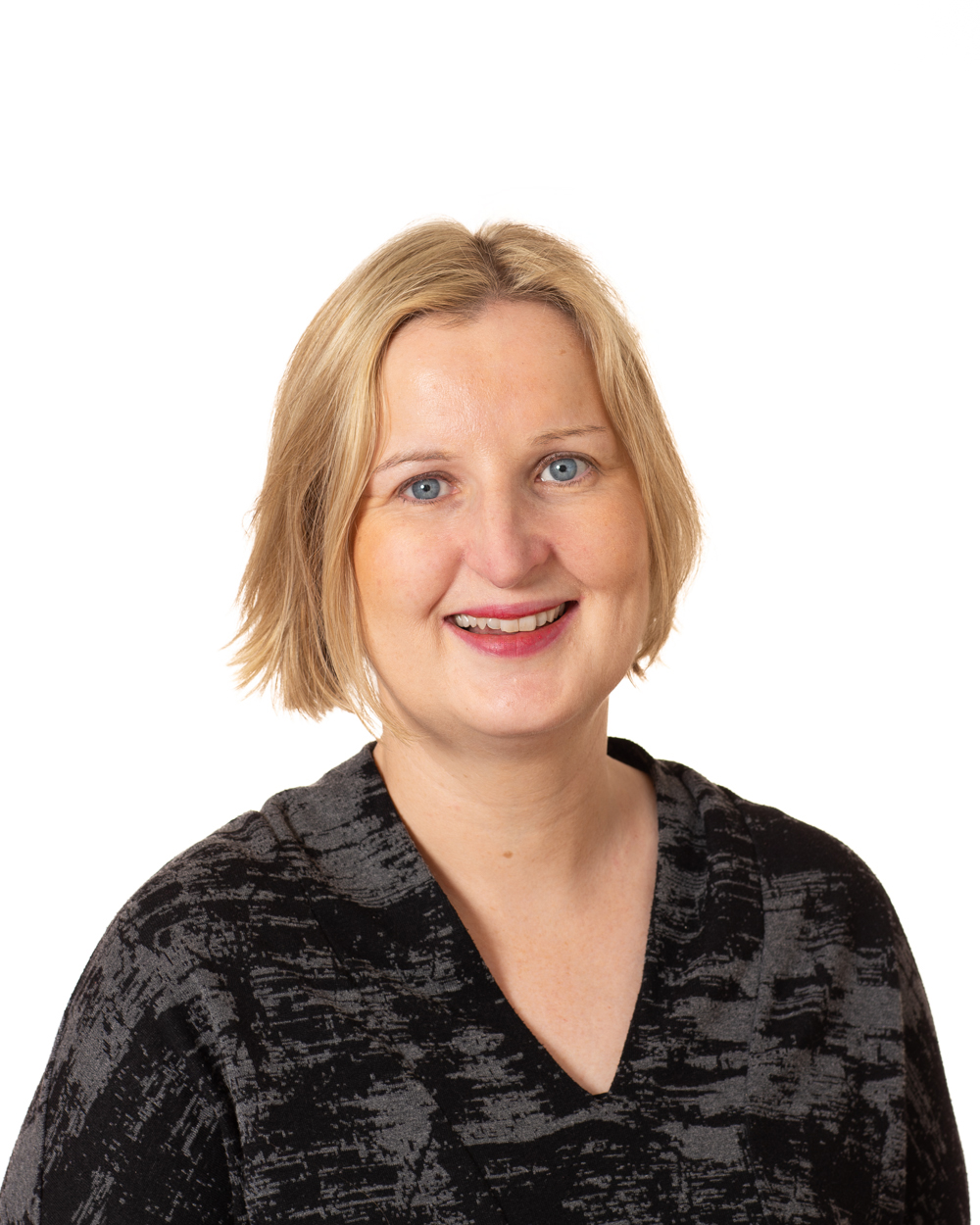
Principal Clinical Neuropsychologist St James Hospital, Dublin

Dr Aine Connolly
Principal Clinical Neuropsychologist St James Hospital, Dublin
Aine is a Principal Clinical Neuropsychologist at St James’s Hospital, Dublin. She has vast experience working with stroke survivors and their families across the lifespan and at all stages of recovery. She has a special interest in supporting families after stroke along with enhancing the accessibility of psychological information post stroke.
What does a good life after stroke mean for you and what support did you need to make it happen?
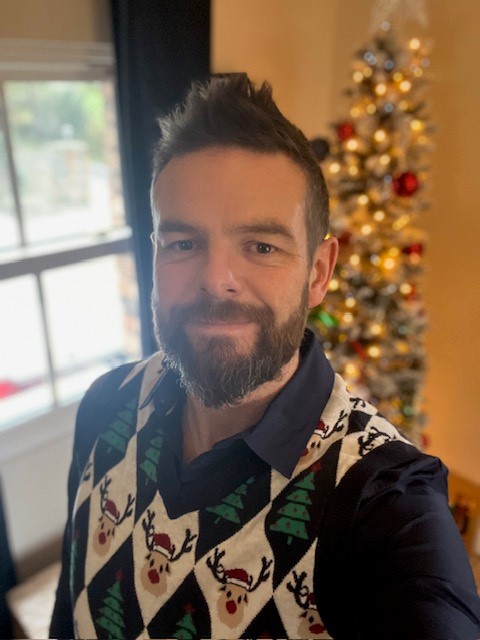
Stroke Survivor, Ireland

Kieran O'Carroll
Stroke Survivor, Ireland
Kieran is a factory manager for Fleetwood Paints in Cavan. He suffered an Ischemic stroke in April 2022. Kieran was not affected by paralysis. The stroke affected speech, work finding and spelling amongst other more high level functions. A PFO closure was completed in Autumn 2022.
After his acute stay, he became a patient of the ESD team in the Mater Hospital, and subsequently the National Rehabilitation Hospital and the Irish Heart Foundation. Kieran returned to work during the Summer of 2022 in an advisory capacity, and full time from January 2023.
Since the stroke Kieran completed the 2022 Dublin City Marathon and returned to motorsport six weeks post stroke to help with his recovery. In 2023 he was a speaker at a National Stoke Program day for all Irish ESD teams, the HSE and the IHF to discuss fatigue, hidden/subtle deficits and how work goals are very important for some patients; having something to aim for and for their own wellbeing.
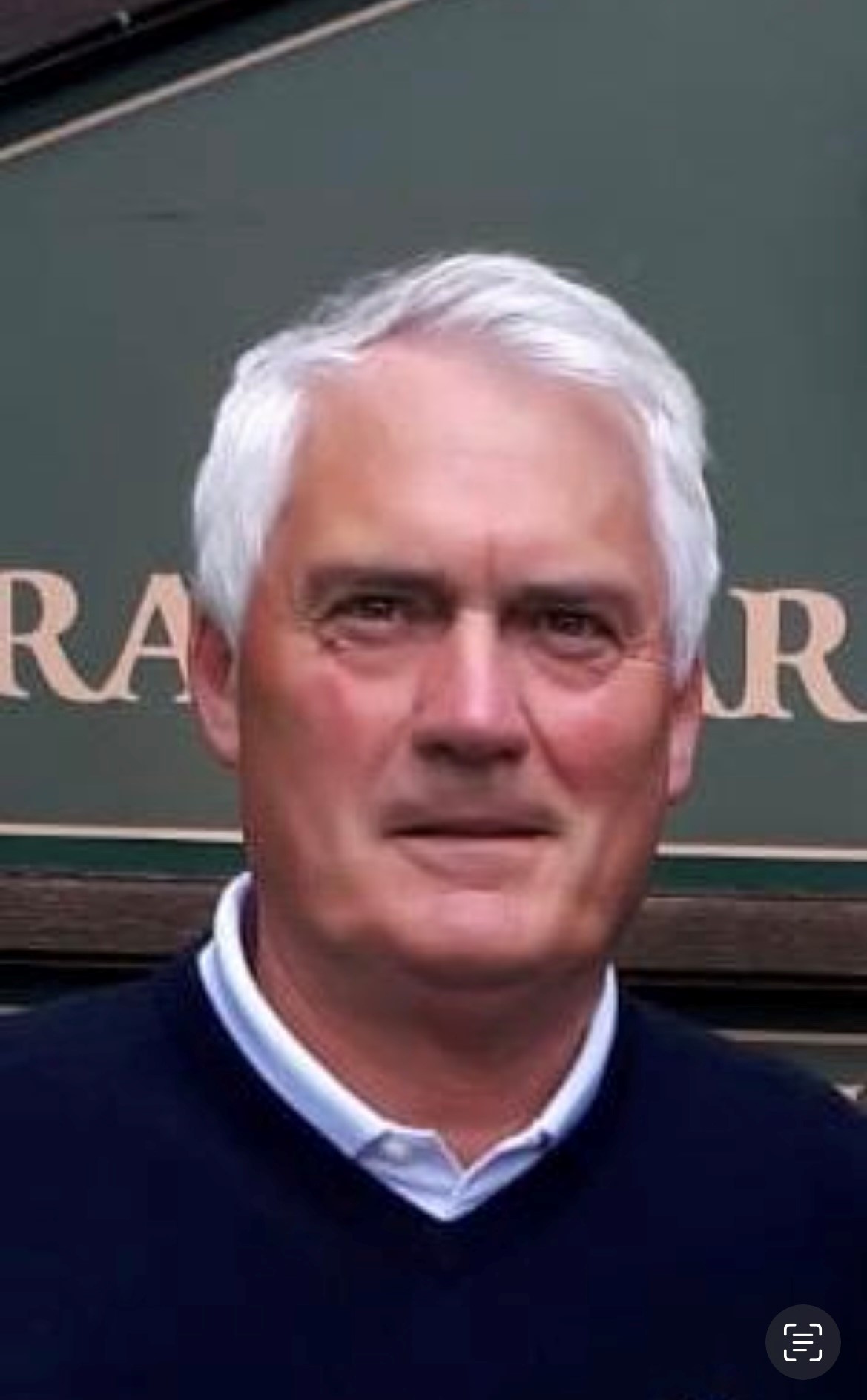
Stroke Survivor, Ireland

David Walpole
Stroke Survivor, Ireland

Stroke Survivor, Ireland

Clíodhna Ni Bhroin
Stroke Survivor, Ireland
In May 2017 Clíodhna had a stroke at age 32 She had an artery dissection 3 weeks previously during boot camp. After receiving treatment and rehabilitation she was able to begin her return to work 2.5 years later. She enjoys time with family and friends and knitting. She continues to recover.
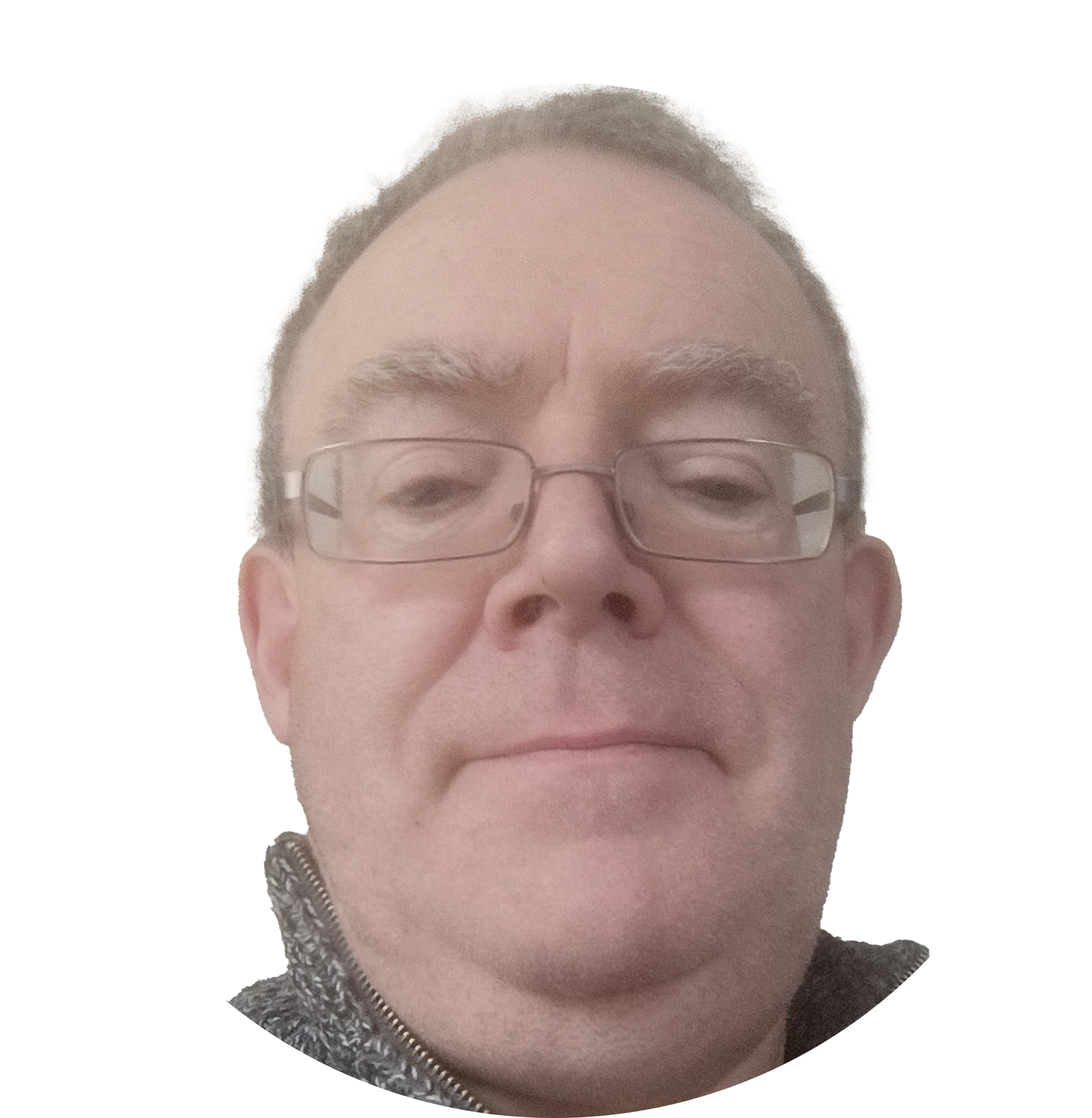
Stroke survivor

Gerard Gill
Stroke survivor
I am a non-drinker/smoker. So, it was a complete shock to me that on Thursday 26th November 2020 age 58 years that out of the blue I suffered a Lacunar Infarct, affecting the right side of my body. I was incredibly lucky that I was where I was, in the Contact Tracing Centre in Ballybrit. At 17.30 my supervisor came to my desk asking on my wellbeing. She had noticed that I hadn’t logged any new calls that day.
She advised me to go away home and hopefully by the time of my next shift I should be well able for it. I packed up and proceeded to the exit but on the way, I knew I’d had a stroke. Lucky enough there were two nurses walking behind me who called the Emergency services, and I arrived in UCHG in very quick time.
Another 10 or so minutes I’d be driving home to Breaffy as I commuted the 85km each way. I spent approx 9 weeks in a hospital setting. But whilst life changing, I feel I have made a full recovery and adapted back to life with the pressures of work
I’m married to Breege. We will be 25 years married in February next year. We adopted Sasha and Alan from Russia as I was diagnosed with acute T Cell Leukaemia in Sept 1983 as a 20 yr old. But all that’s behind me and onwards and upwards now.
Parallel Sessions
A disproportionate burden? Life after stroke in women
Monday 11 March 11.30-12.30
Tuesday 12 March 09.30-10.30
This session will discuss the specific and unique issues that women face after stroke. It will cover the historical lack of representation of women in stroke research before moving on to specific issues for women in relation to secondary prevention of stroke and managing life after stroke. The session will highlight the need for a greater understanding of the impact of biological sex and gender on clinical practice and research on life after stroke.
Contextualising sex and gender to improve stroke research, policy and practice
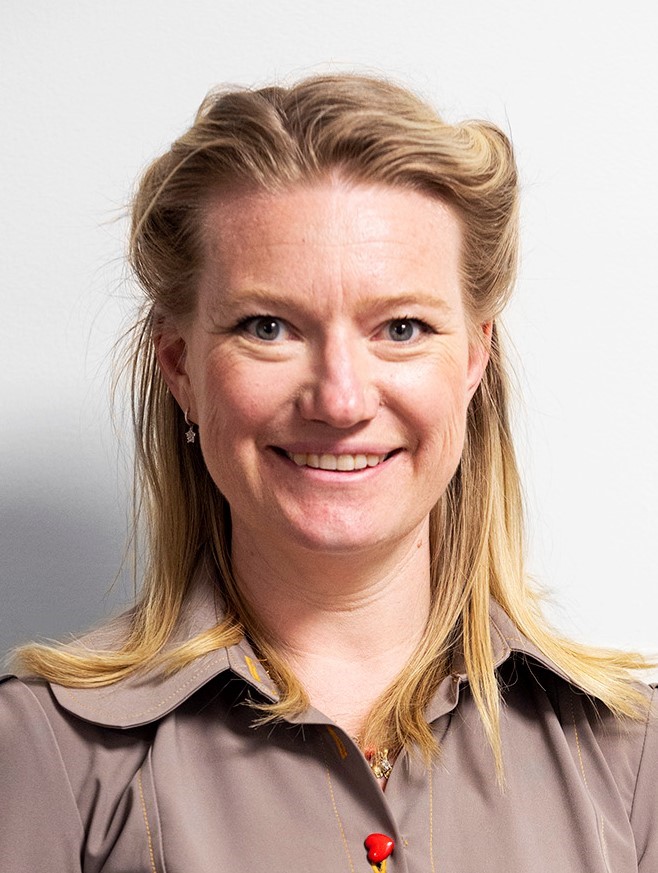
Oslo University Hospital, Norway

Dr Else Sandset
Oslo University Hospital, Norway
Else Charlotte Sandset completed her undergraduate medical training at the Royal College of Surgeons in Ireland in 2006. She now works as consultant vascular neurologist at Oslo University Hospital in Norway. She chairs the Oslo Stroke Clinical Research Group at Oslo University Hospital and is part of the Prehospital Acute Brain Programme at the Norwegian Air Ambulance Foundation. She is involved in clinical research spanning from the ambulance dispatch centre to secondary prevention of stroke, and a strong advocate of the importance of a diversity and inclusion foucs in stroke research.
Specific secondary stroke risk factors in women after stroke
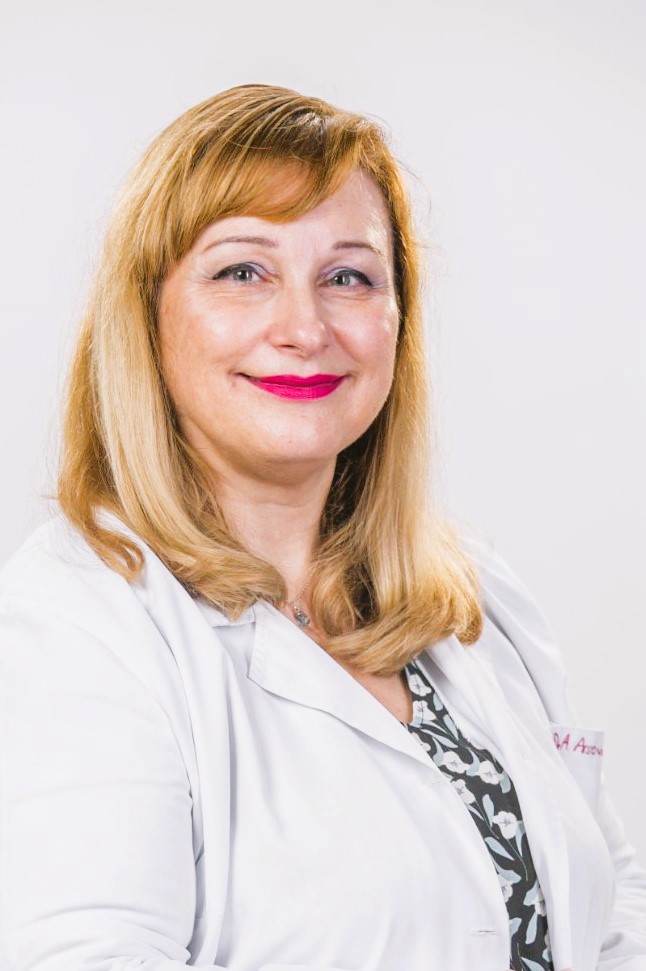
Universities Cyril and Methodius, North Macedonia

Professor Anita Arsovska
Universities Cyril and Methodius, North Macedonia
Dr. Anita Arsovska is Head of Department for Urgent Neurology at the University Clinic of Neurology and Professor of Neurology at the University “Ss Cyril and Methodius”, Faculty of Medicine in Skopje, North Macedonia. Her main interest involve stroke management, neurosonology and neuroimaging. Prof. Arsovska is Full member of European Academy of Neurology, Fellow of European Stroke Organization and Board member of World Stroke Organization. She is President of the Macedonian Stroke Association, Associate Commissioning Editor of World Stroke Academy and former Vice-President of Stroke Alliance for Europe. Prof. Arsovska is involved in the ESO-EAST and Angels projects. She has also participated in the Stroke Action Plan for Europe as part of the acute stroke management working group and is one of the national coordinators for implementation of SAP-E in N. Macedonia. Prof. Arsovska is very active in promoting stroke prevention and raising stroke awareness, organizing many public campaigns and scientific meetings and supporting the European and the World Stroke Day.
Raising a family after stroke - My story

Stroke Survivor, Portugal AVC Stroke Organisation, Portugal

Diana Wong Ramos
Stroke Survivor, Portugal AVC Stroke Organisation, Portugal
I suffered a Cerebral Venous Thrombosis when I was 34 years old (in 2011). Until then I thought strokes only affected older people… I couldn’t imagine how difficult it is to sit, stand up, walk or take a bath by myself after a severe brain injury. Stroke is the main cause of death and morbidity in my country (Portugal), and I felt people weren’t actually aware of its burden. Nowadays I don’t work as a journalist anymore, now I’m a patient advocate, board member of the first portuguese stroke survivors organization and a fulltime mom! I gave birth to my 3rd child two years after my stroke. Such a blessing!
Spasticity: What is it and how can we manage it?
Monday 11 March 11.30-12.30 and 16.00-17.00
To understand what spasticity is and the ways it can be managed.
What is spasticity?
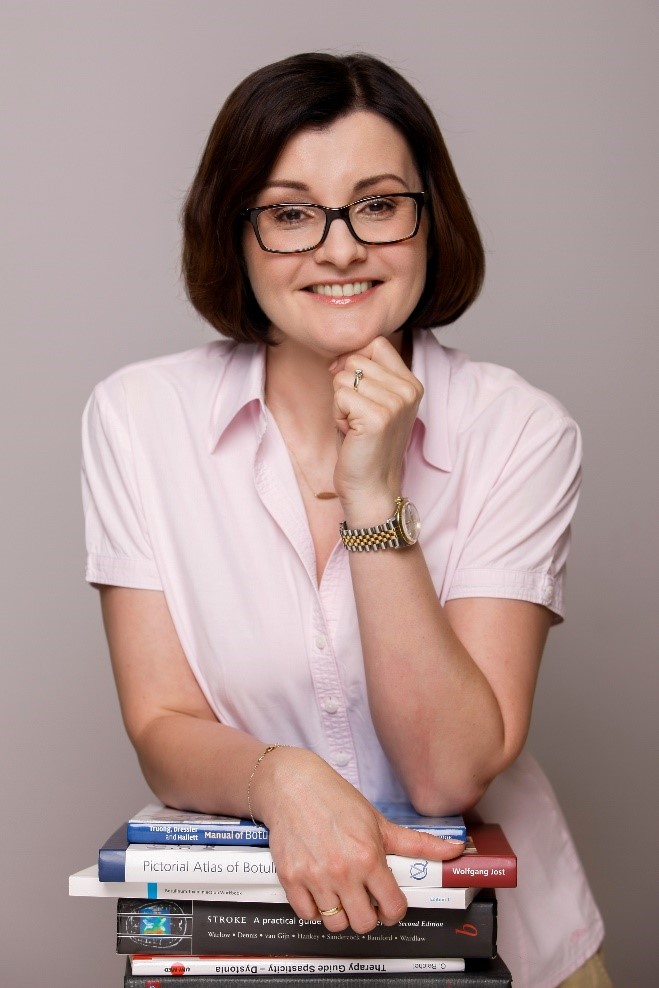
Institute of Psychiatry and Neurology Warsaw, Poland

Dr Iwona Sarzyńska-Długosz
Institute of Psychiatry and Neurology Warsaw, Poland
Iwona Sarzyńska-Długosz MD, PhD, assistant professor, neurologist, rehabilitation medicine specialist, pain medicine specialist, head of Neurological Rehabilitation Ward at 2nd Department of Neurology in Institute of Psychiatry and Neurology, Warsaw, Poland, chairman of Polish Neurological Society Neurorehabilitation Section, vice-president of Polish Rehabilitation Medicine Society, spasticity management expert, certified teacher for botulinum toxin treatment and expert for Stroke Foundation in Poland.
Management of spasticity with botulinum toxin/physiotherapy management
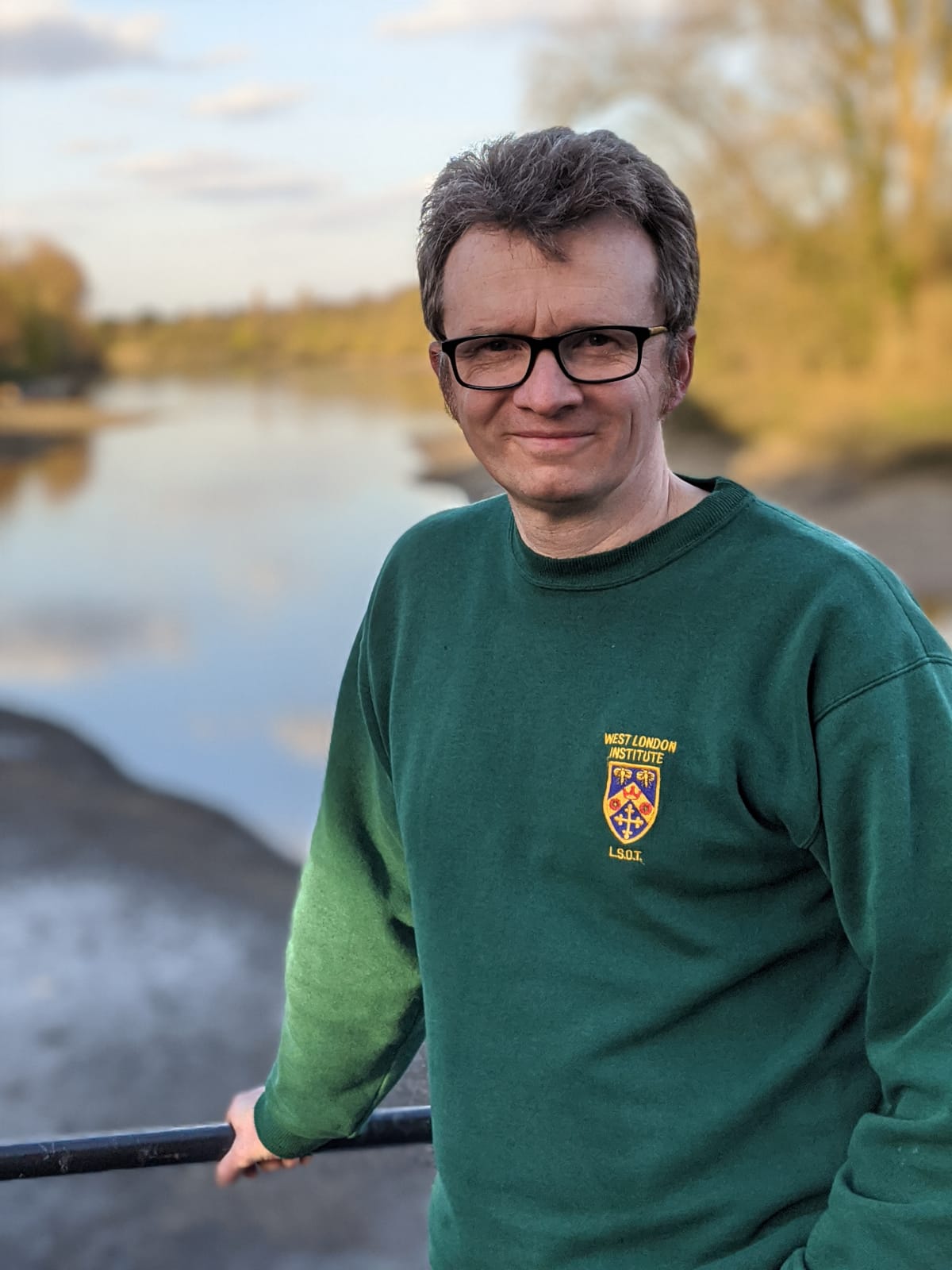
Kings College London, England

Dr Stephen Ashford
Kings College London, England
Dr Ashford is Reader in Rehabilitation (King’s College London) and Consultation Physiotherapist (London North West University Healthcare NHS Trust). He incorporates clinical practice in complex disability management in acquired brain injury with research and implementation science. He has been a leader for the development of practice in spasticity management and rehabilitation in this context for patients following stroke and acquired brain injury nationally and internationally. He currently leads research projects on rehabilitation planning for spasticity management, including development of a treatment planning mobile accessible web tool for clinicians, those with stroke and carers. He has an interest in development and prevention of contracture following neurological impairment and the factors that influence prevention and treatment.
A vision for vision after stroke
Monday 11 March 11.30-12.30 and 16.00-17.00
To consider the impact of visual impairment and/or sight loss after stroke. The session will include talks from stroke survivors about their experiences of sight loss after a stroke and how they’ve coped with this and talks from researchers and support organisations working to develop ways to better assess and provide care for people who experience visual impairment or sight loss after a stroke.
Vision assessment in stroke care services: the KROSS project
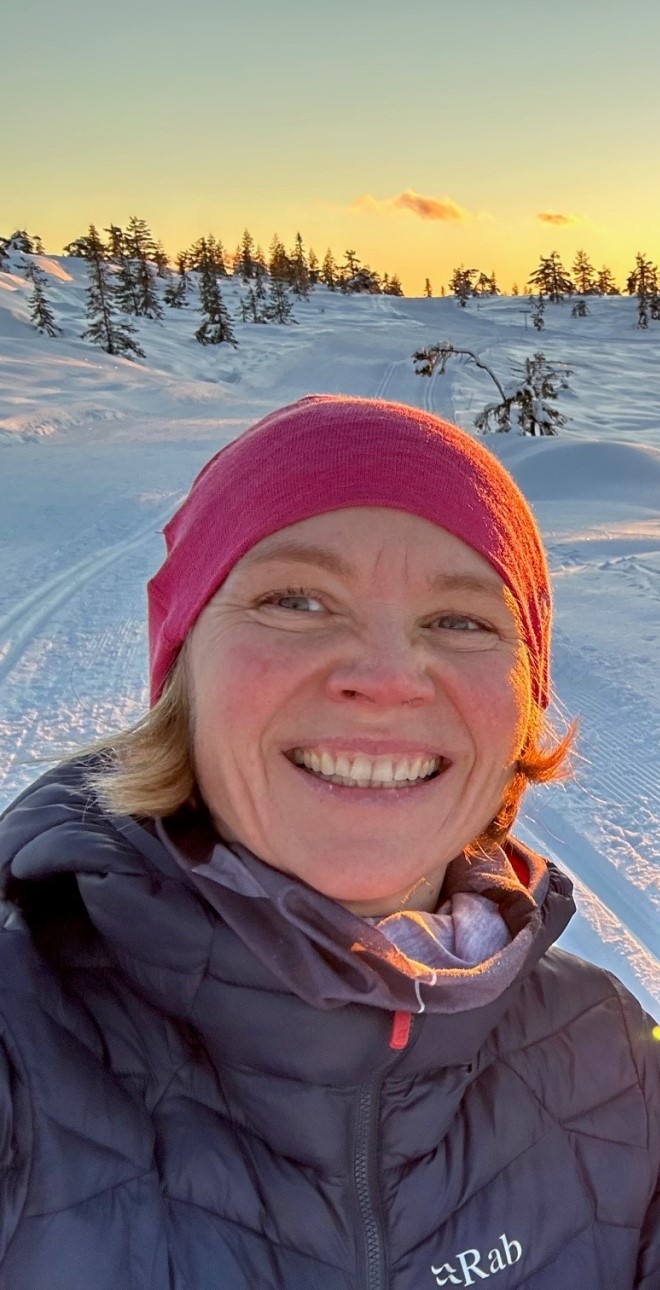
University of South-Eastern Norway, Norway

Professor Helle Falkenberg
University of South-Eastern Norway, Norway
Professor Falkenberg is an optometrist with a particular interest in research related to vision problems after stroke, knowledge translation and interdisciplinary collaboration. She has extensive experience in teaching and supervising. She has a PhD in psychophysics and vision science from Glasgow Caledonian University and did a Post-Doc in Vision Rehabilitation at UCL, London.
What helps in coping with and self-management of sight loss after stroke
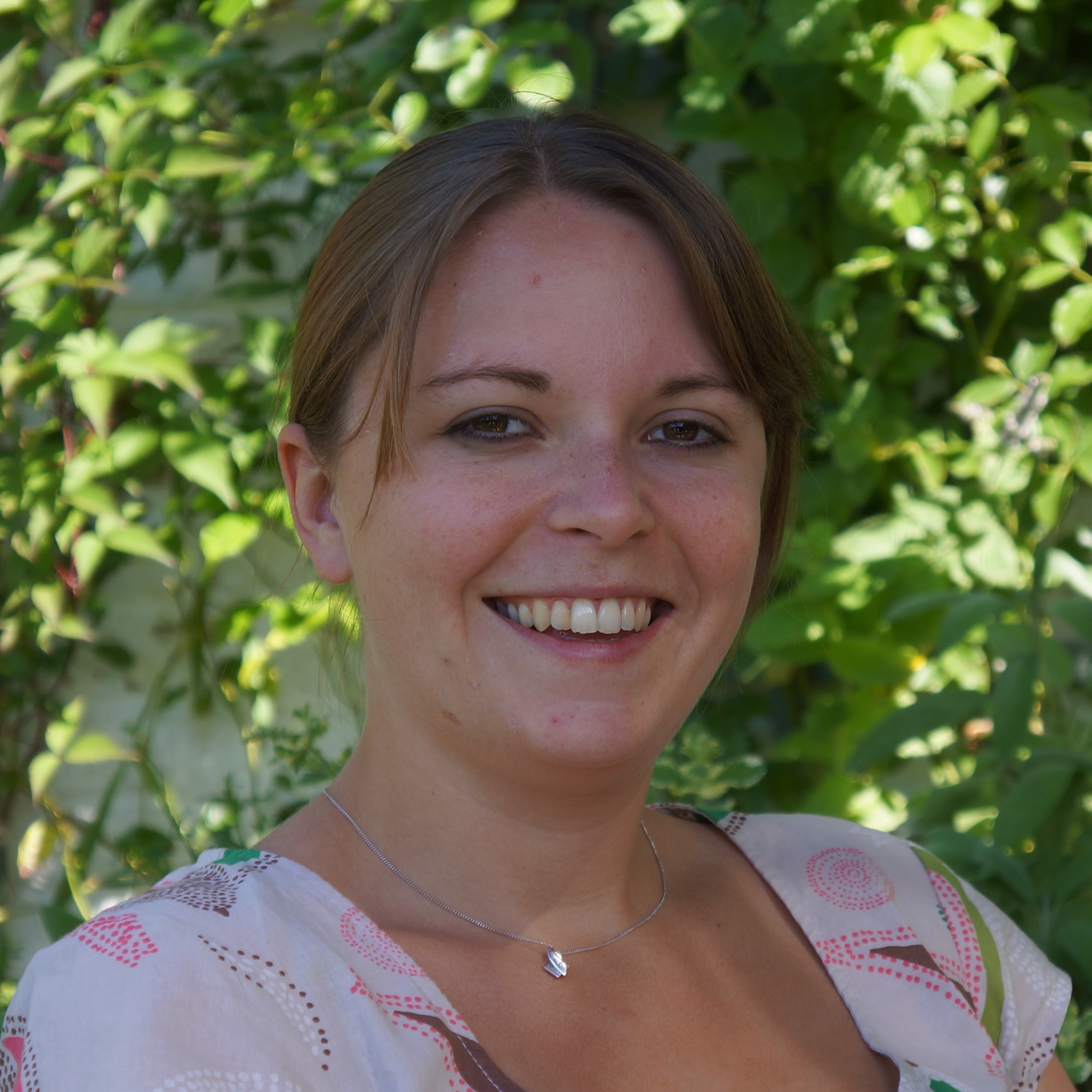
University of Liverpool, England

Dr Lauren Hepworth
University of Liverpool, England
Dr Lauren Hepworth is a stroke specialist orthoptist with over 15 years clinical experience. She obtained her PhD in 2017. She is currently a Tenure Track Research Fellow based at the University of Liverpool and Chief Investigator of the Impact of Visual Impairment after Stroke II (IVIS II) study.
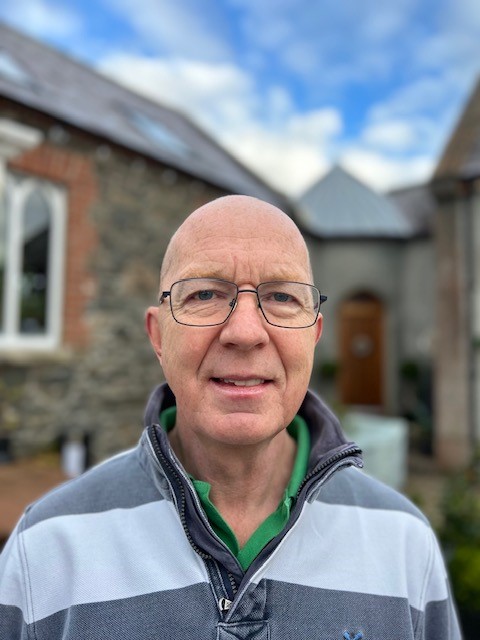
Stroke Survivor, Northern Ireland

Jeremy Johnston
Stroke Survivor, Northern Ireland
I’m Jeremy Johnston from Hillsborough, Northern Ireland, a now retired teacher of Design and Technology. I’m married and we have two children. I like to keep myself busy in and around our home enjoying my woodworking hobby but have enjoyed some travel opportunities since my stroke in March 2017.
No decision about me without me – speaking together with one voice
Monday 11 March 11.30-12.30
Tuesday 12 March 09.30-10.30
In this session, we will address the challenges faced by those affected by stroke when treatment and support decisions are being made. We will hear from stroke survivors, aphasia trialists and those involved in advocacy. They will outline potential strategies and skills to foster successful communication to ensure that those affected by stroke are central their treatment and support decision making process.
Advocacy in action and effective communication: Role play session between an allied health professional and stroke survivor – a good conversation and a bad conversation
Role play session
Advocacy in action and effective communication: Reflection with the audience - How we advocate for stroke including practical examples of navigation health issues and lived experiences
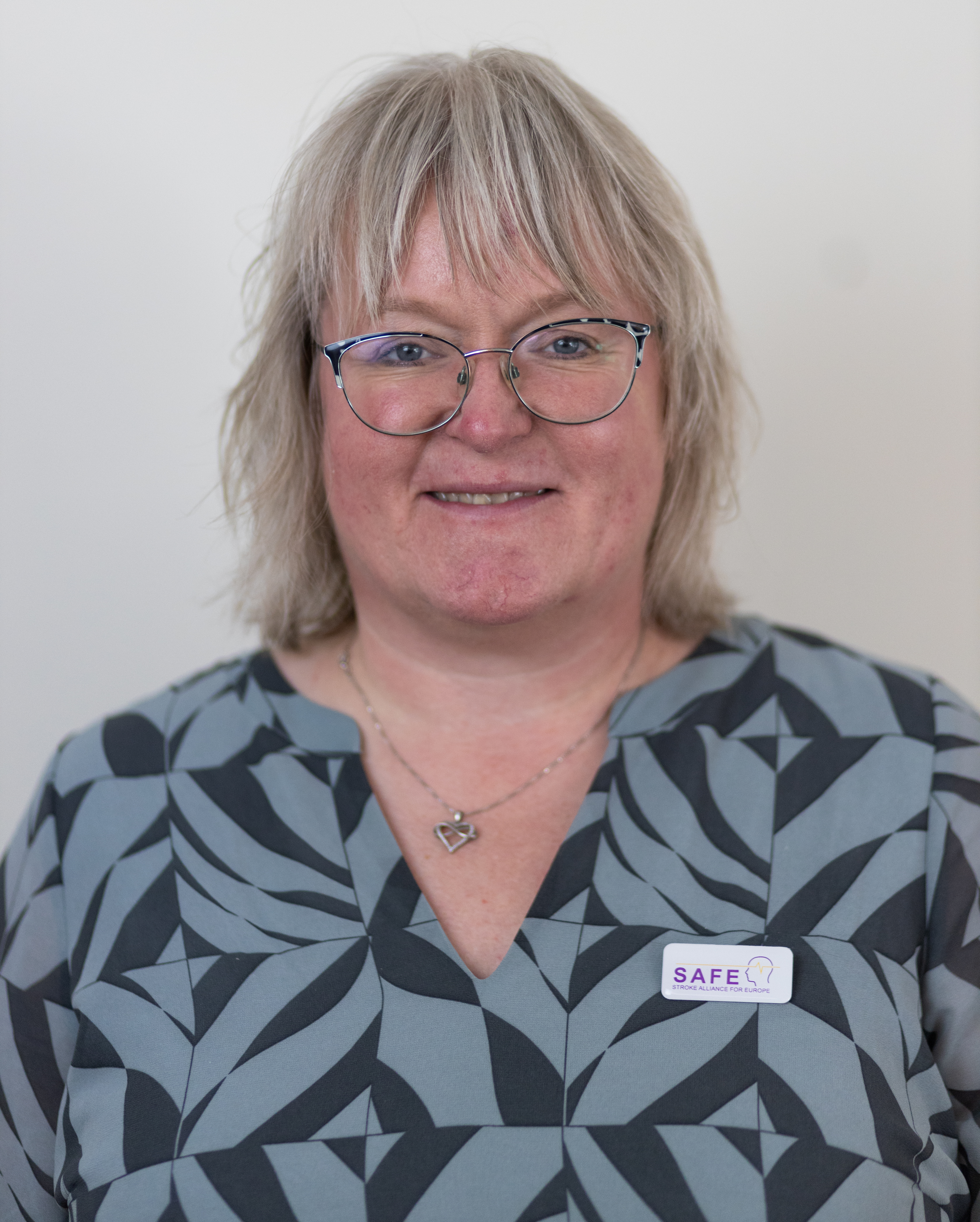
Stroke Survivor, Norway

Marianne Tangen
Stroke Survivor, Norway
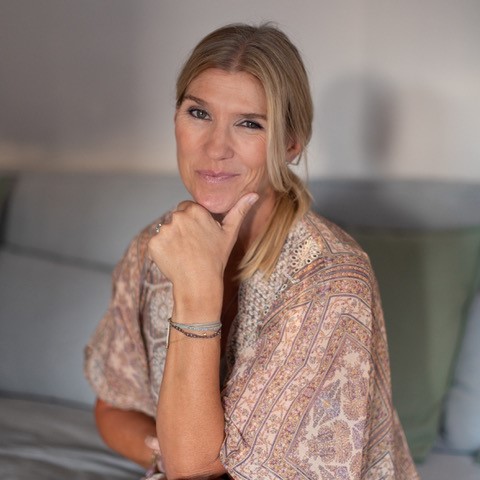
Author, Speaker, Course Creator and Stroke Survivor, Switzerland

Stacie Broek
Author, Speaker, Course Creator and Stroke Survivor, Switzerland
Stacie Broek is an ex-marketing professional turned author, who had to teach herself to write again after a stroke at age 46. She’s the author of (al)ONE: Thriving a Stroke as well as a digital course creator.
Stacie is an advocate for passion-based therapy and believes that stroke should be seen as an opportunity. Her work includes writing, public speaking and influencing public health policy.
Some key examples include: Philips Healthcare interview for the World Stroke Day 2022, World Stroke Campaign Committee member and shooting a pilot for the AI media company “In the Room”.
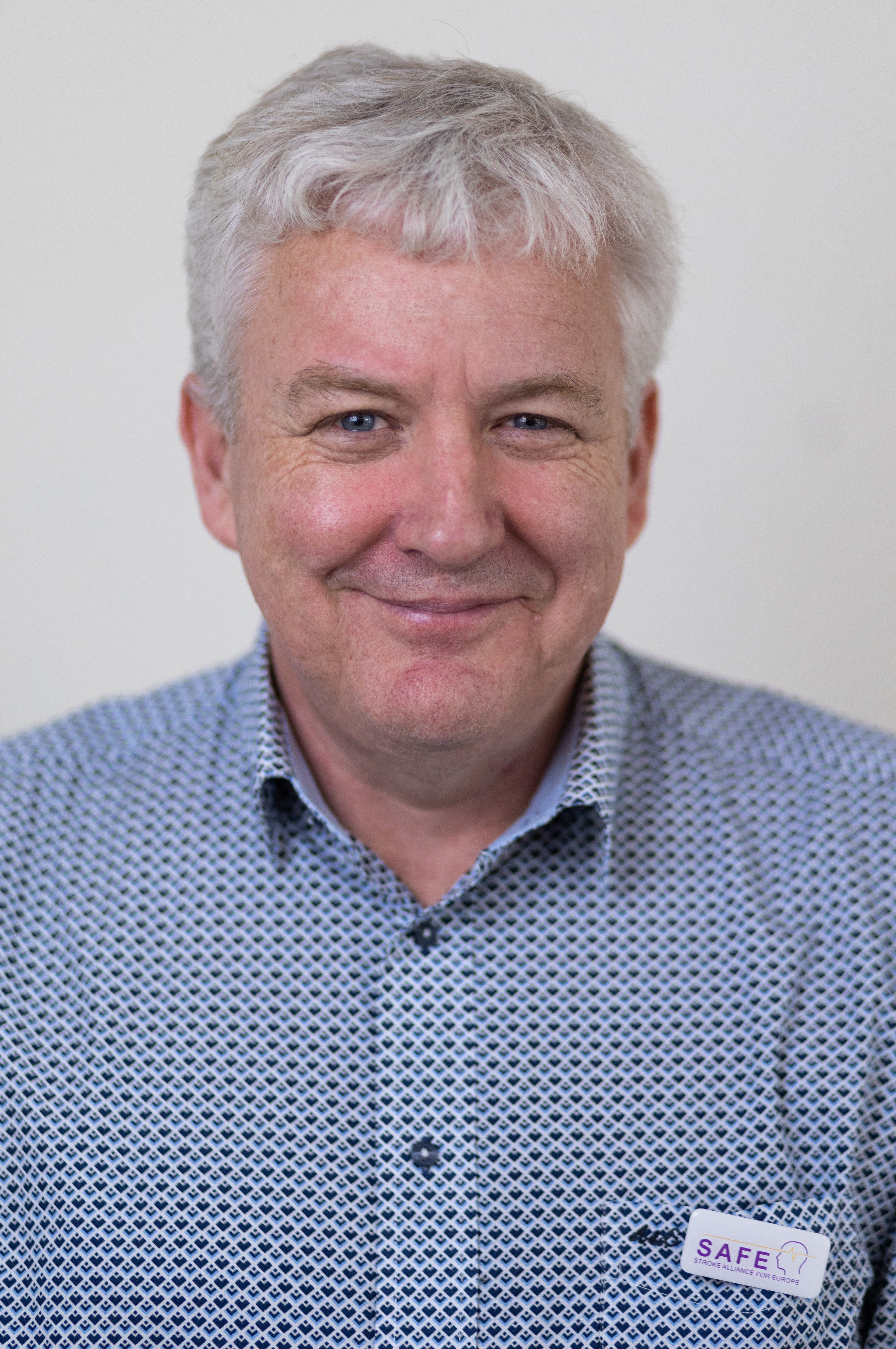
Irish Hearth Foundation, Ireland

Chris Macey
Irish Hearth Foundation, Ireland
Chris Macey is Director of Advocacy and Patient Support in the Irish Heart Foundation, A journalism graduate, Chris worked as a senior journalist with the Irish Press Group for 12 years, specialising in politics, health and social issues before being appointed as a Special Adviser in the Departments of the Taoiseach and Foreign Affairs. He later worked for the Sunday Independent and established a stable of quality local newspapers and magazines after working for the Rehab Group as Head of Communications. Chris was previously Chairman of both the Neurological Alliance of Ireland and the Volunteer Stroke Scheme and is currently Treasurer of the Stroke Alliance for Europe.
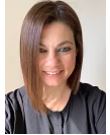
Cyprus University of Technology, Cyprus

Dr Marina Charalambous
Cyprus University of Technology, Cyprus
Marina holds a PhD in Medical Sciences from the University of Fribourg in Switzerland and works as a Clinical Lecturer at the Department of Rehabilitation Sciences at the Cyprus University of Technology. Marina is the founder of the Cyprus Stroke Association, a Stroke Support Organization, and an Inaugural Future Stroke Leader Alumni of the World Stroke Organization. She investigates Patient and Public Involvement in Stroke and Aphasia research, has several peer-reviewed scientific publications, and presents her work at international stroke and aphasia conferences. She is a stroke and aphasia advocate in Europe and Cyprus and a National Coordinator of SAP-E.
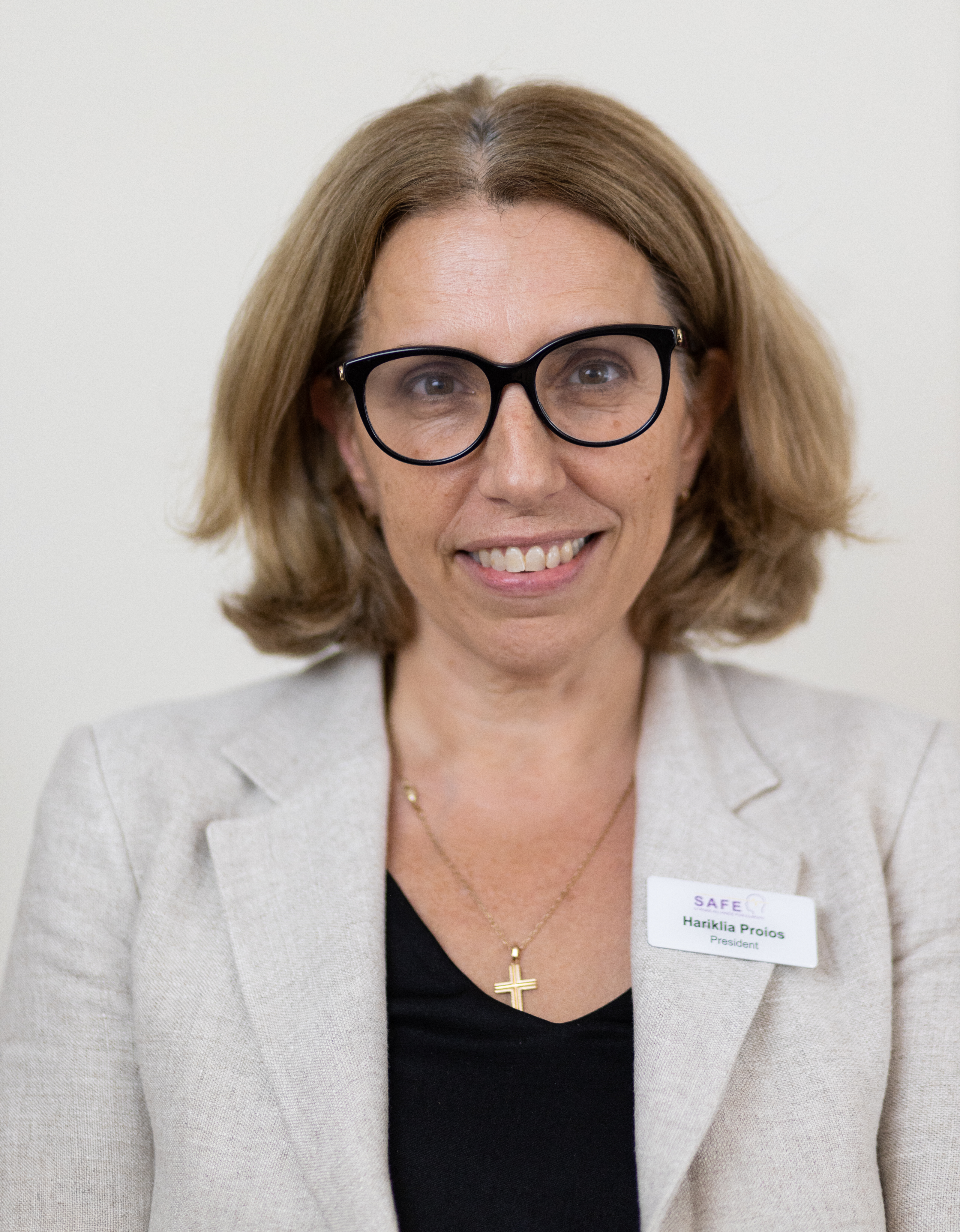
University of Macedonia, Greece

Professor Hariklia Proios
University of Macedonia, Greece
Hariklia Proios, PhD, is a Professor of Neurocognitive Disorders and Rehabilitation at the University of Macedonia, Thessaloniki, Greece. Since 2020, she has served as President of SAFE (Stroke Alliance for Europe) and has been a Board member since 2016, representing the Hellenic Alliance for Stroke SSO. Holding a PhD from Teachers College, Columbia University, and a B.A. from Hofstra University, she achieved tenure as an Assistant Professor at Montclair State University. Dr. Proios has organised community support groups globally and currently leads the educational segment of the FASTHEROES project. Actively engaged in international stroke and rehab committees, she contributes to the World Health Organization and the American Congress of Rehab Medicine.
SUpporting wellbeing through PEeR Befriending: Outcomes of the SUPERB trial for people with aphasia
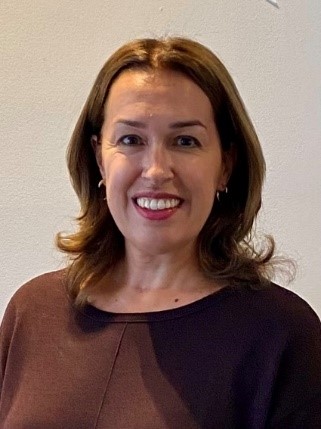
City University of London, England

Professor Katerina Hilari
City University of London, England
Katerina is a Speech and Language Therapist with a background in Psychology. Her research is driven by the priorities of people with stroke and aphasia. She leads a programme of research on developing and evaluating complex interventions for aphasia; on the psychosocial impact of stroke, and on the development and use of patient-reported outcome measures. Katerina leads the Trials for Aphasia Panel of the Collaboration of Aphasia Trialists and is on the Board of Trustees of Aphasia Re-Connect.
Highest scoring abstracts from research and service provision
Monday 11 March 16.00-17.00
The highest scoring scientific and service evaluation abstracts will be presented in this session.
Service: Socialising from home - Peer support and communication practice at the Aphasia Café
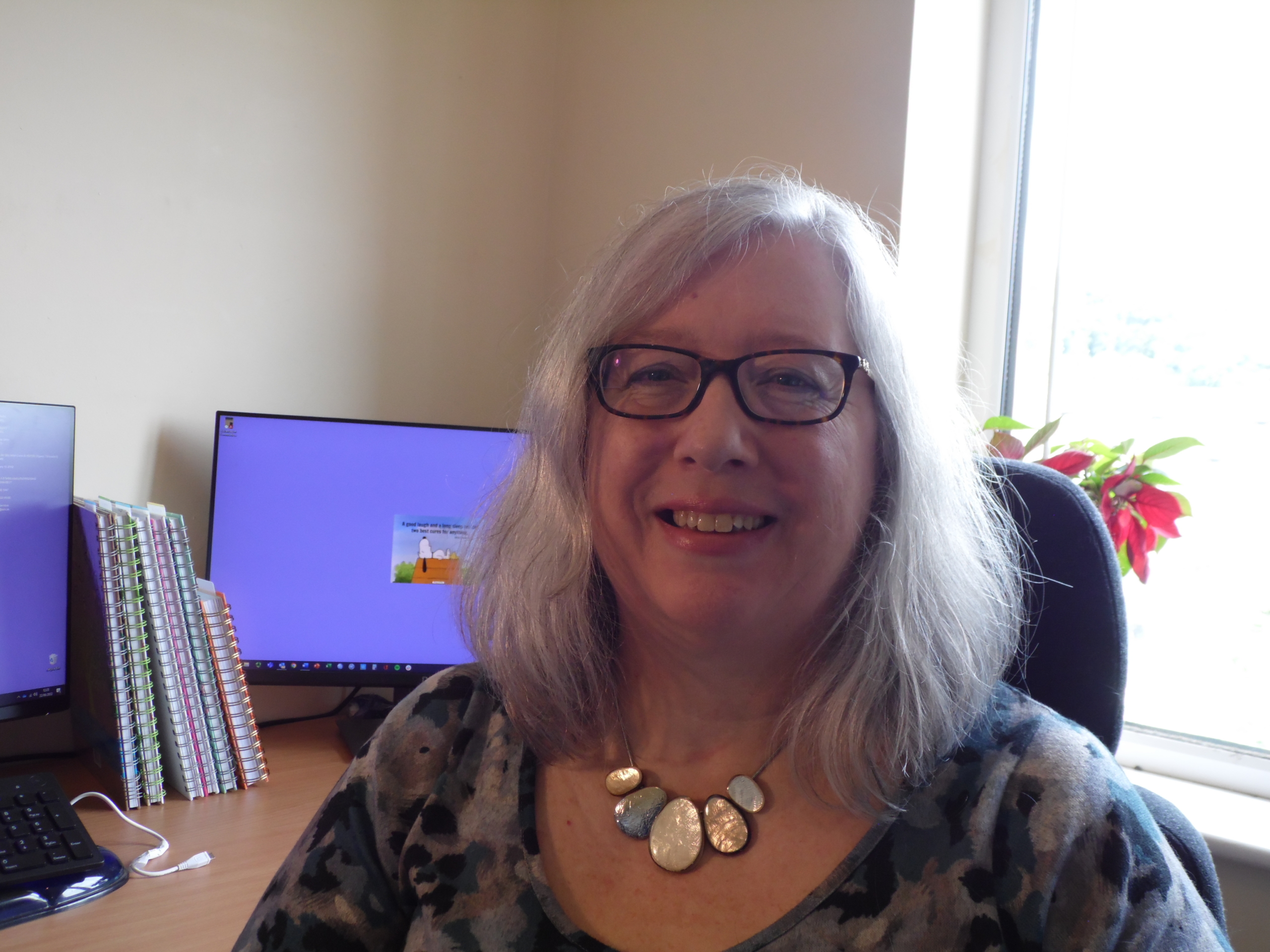
University of Cork, Ireland

Dr Helen Kelly
University of Cork, Ireland
Helen is a Speech and Language Therapist. She sits on the Board of Directors of the Cork Stroke Support CLG and Chairs the Research and Education sub-committee. Helen’s post-stroke aphasia-focussed research endeavours to include people with aphasia through PPI and Codesign, reflecting her role on the PPI Ignite Advisory Panel. Helen established the Aphasia Café with her speech and language therapy students, an online conversation group, which is an informal supportive space for people with aphasia to meet for peer-support and to practice their communication skills. She currently leads ENSPIRED, the HEA funded North-South Research Programme which will establish an all-island communication focussed student network and research consortium.
Service: Enhancing the competency of coordinators in a stroke support organisation; creating a self-assessment framework.
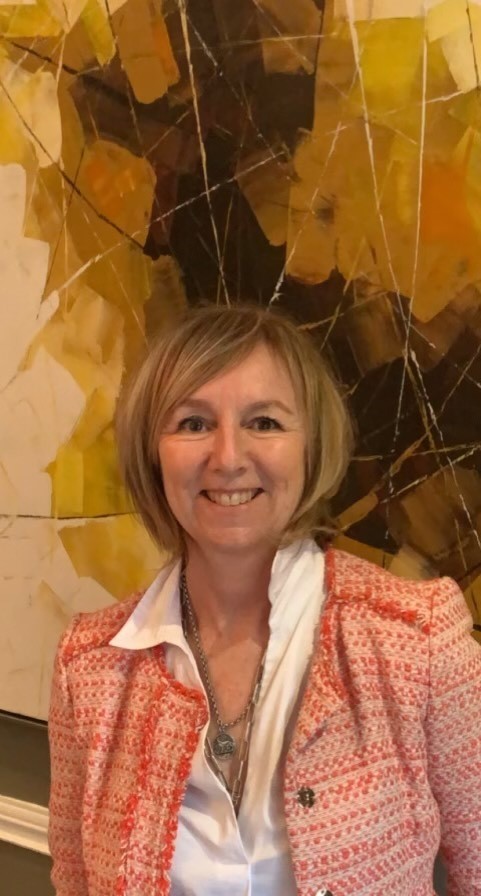
March of Dimes, Canada

Suzanne Smith-Bayley
March of Dimes, Canada
Suzanne Smith-Bayley is the National Manager, After Stroke and Professional Practice at March of Dimes Canada. Prior to transitioning into a leadership role, Suzanne had extensive experience as an Occupational Therapist in the field of Adult Neurorehabilitation. Suzanne’s work experience spans the healthcare continuum and includes hospital, community, vocational and government sectors. Most of her career has been working with people with stroke and their families in the community and championing best practice in rehabilitation.
In her current role in the After Stroke program, Suzanne is the bridge between strategy and operational delivery. This professional practice role allows her to spend a significant amount of time supporting front line staff to ensure that they have the requisite tools, skills and knowledge to be successful in supporting people with Stroke. Suzanne’s clinical and leadership experience came together as she created the Competency Self-Assessment Tool that she will be presenting on at the ELASF conference.
Research: Addressing sexuality post-stroke: Can a targeted implementation change practice?
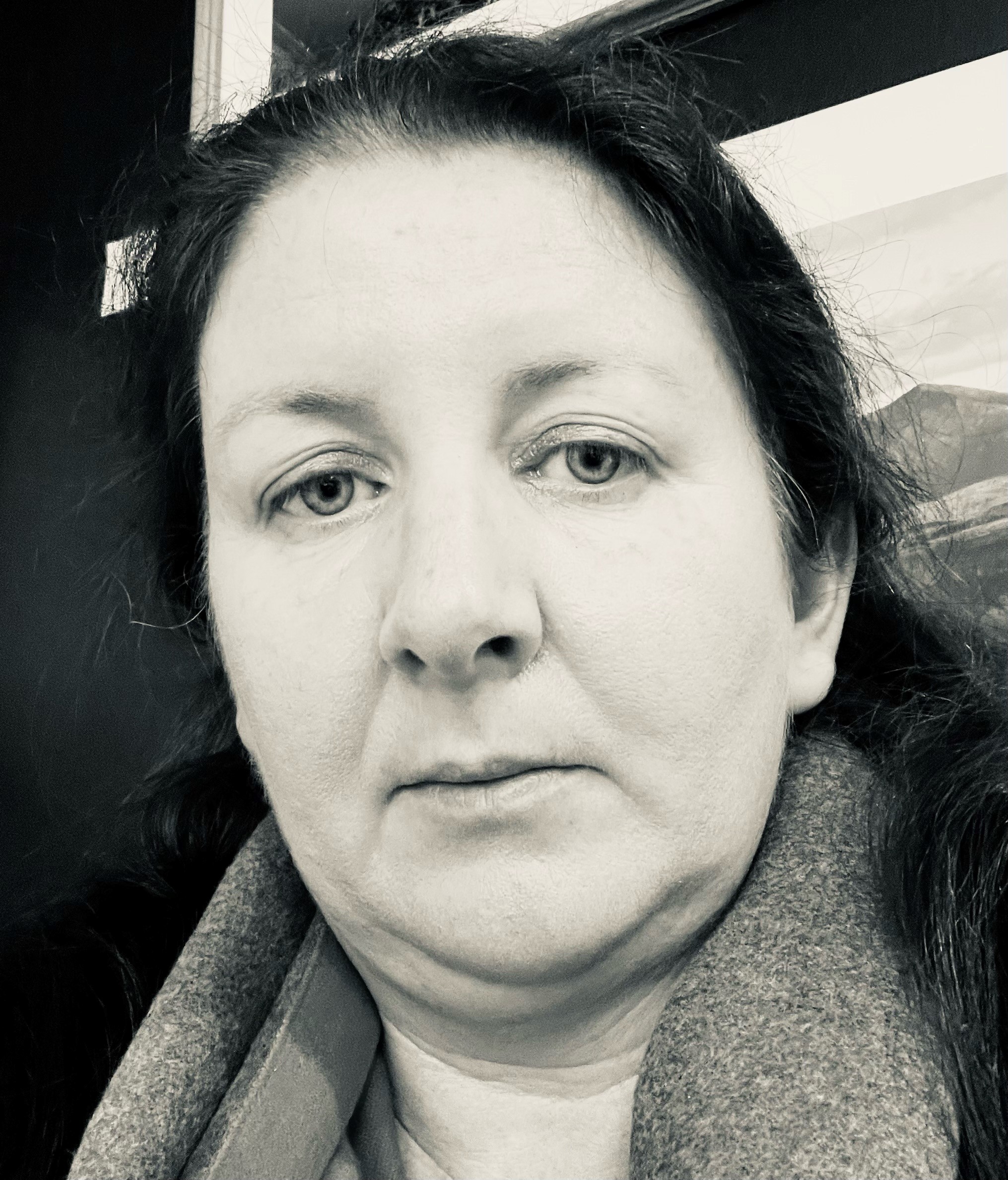
Associate Professor Margaret McGrath
University of Sydney/University College Cork, Ireland

Associate Professor Margaret McGrath
University of Sydney/University College Cork, Ireland
Prof Margaret McGrath is an occupational therapist with a special interest in sexuality, chronic disease and disability. Her research is focused on developing evidence based assessment and interventions for sexual dysfunction. She is also interested in how healthcare professionals can be supported to address sexuality in practice using theoretically informed behaviour change techniques.
Research: Life one year after stroke – results from the Swedish Riksstroke quality-of-care review
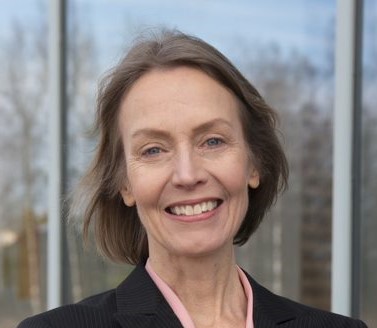
Orebro University, Sweden

Professor Mia von Euler
Orebro University, Sweden
Mia von Euler is educated at Karolinska Institutet, Sweden, where she was associated professor of Neurology 2007-2019. In 2020 she became professor of Neurology at Örebro University and Dean of the Medical Faculty. Since 2022 she is the Chair of the Swedish stroke registry Riksstroke. Her research focuses on stroke.
Exploring mental health post-stroke
Monday 11 March 15.00-16.00
Tuesday 12 March 09.30-10.30
Following from the Life saved life worth living report launch in 2023, this session will focus on issues around mental health. The session will explore how these difficulties can affect stroke survivors and carers and will review what research tells us about post-stroke mental health difficulties. Practical tips on how to recognise and deal with mental health difficulties will be provided. The session will end with a discussion about what can be done better in post-stroke mental health.
What do mental health difficulties look like in post-stroke?
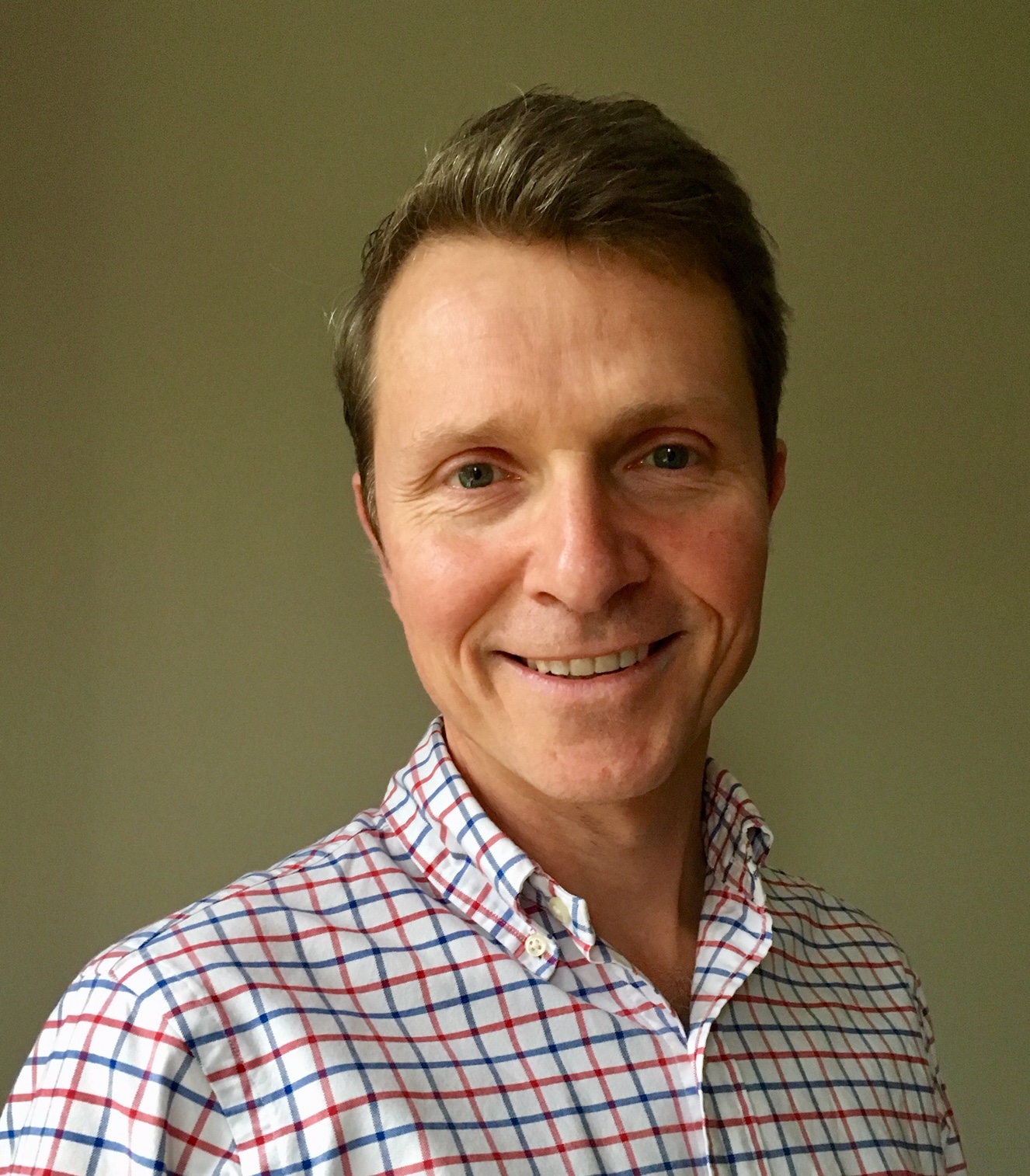
University of East Anglia, England

Professor Niall Broomfield
University of East Anglia, England
Niall currently holds the Chair in Clinical Psychology at the University of East Anglia. Prior to that, he was Consultant lead for NHS Greater Glasgow and Clyde Stroke Clinical Psychology and an NHS Research Scotland Clinical Research Fellow. He has a longstanding clinical and research interest in the mood and emotional effects of stroke.
What should you do when you are struggling?
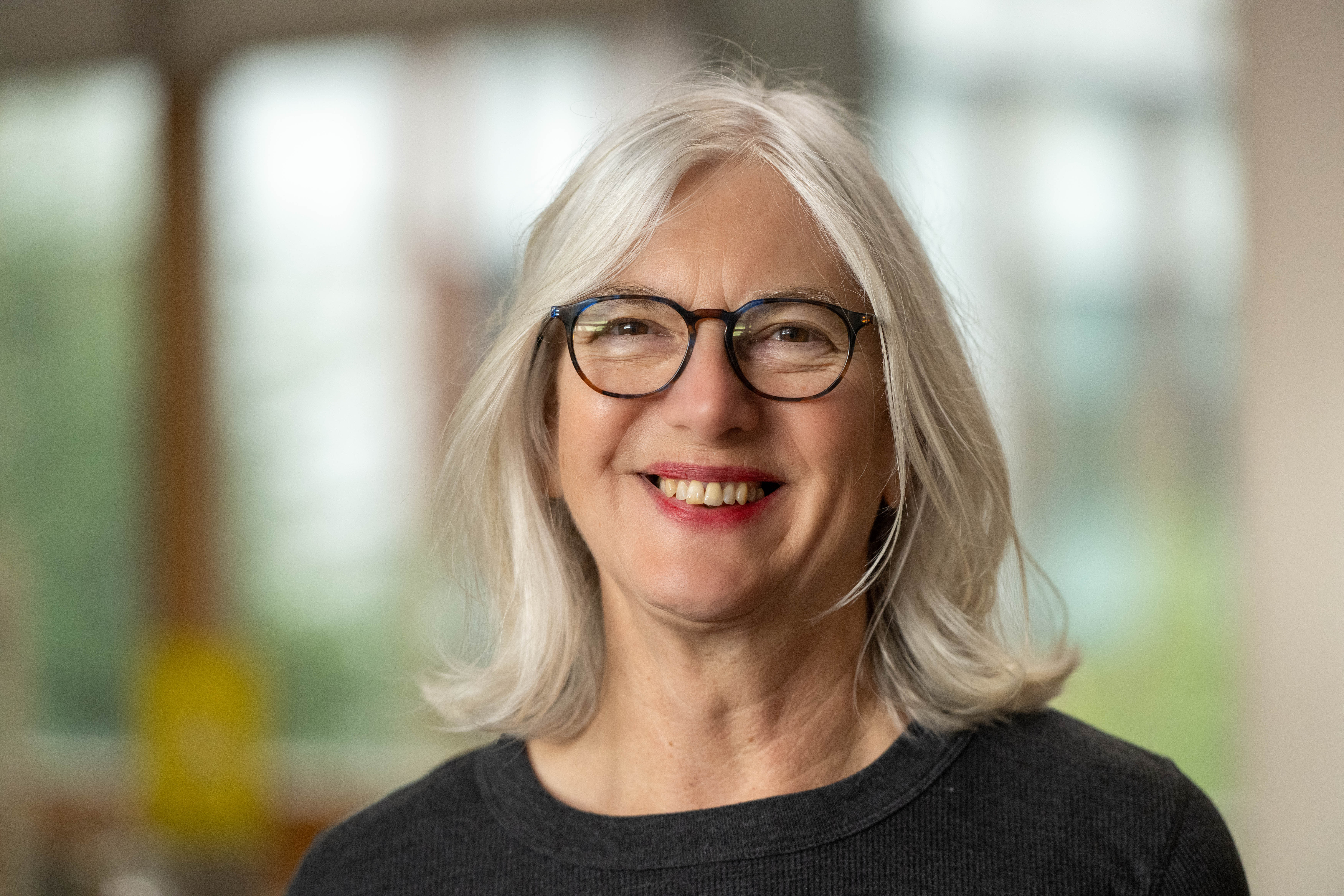
Glasgow Caledonian University, Scotland

Professor Maggie Lawrence
Glasgow Caledonian University, Scotland
Professor Maggie Lawrence has a background in stroke nursing and information science. Maggie’s current research focus is on manging mood disorder after stroke. She leads HEADS: UP (Helping Ease Anxiety and Depression after Stroke), a programme of research that focuses on Mindfulness Based Stress Reduction for self-management of mood disorder post-stroke.
My mental health and me

Author, Speaker, Course Creator and Stroke Survivor, Switzerland

Stacie Broek
Author, Speaker, Course Creator and Stroke Survivor, Switzerland
Stacie Broek is an ex-marketing professional turned author, who had to teach herself to write again after a stroke at age 46. She’s the author of (al)ONE: Thriving a Stroke as well as a digital course creator.
Stacie is an advocate for passion-based therapy and believes that stroke should be seen as an opportunity. Her work includes writing, public speaking and influencing public health policy.
Some key examples include: Philips Healthcare interview for the World Stroke Day 2022, World Stroke Campaign Committee member and shooting a pilot for the AI media company “In the Room”.
Secondary stroke prevention - managing blood pressure and the benefits of exercise
Tuesday 12 March 09.30-10.30
This session will focus on two important aspects in the prevention of further strokes – managing blood pressure and exercise. We will discuss the importance of controlling high blood pressure, how best it should be measured and managed both with and without medicines. We will also discuss the importance of exercise in healthy ageing and what exercise, in what quantity, makes a difference. There will be practical tips for stroke survivors, carers and professionals.
Stroke secondary prevention: Managing blood pressure
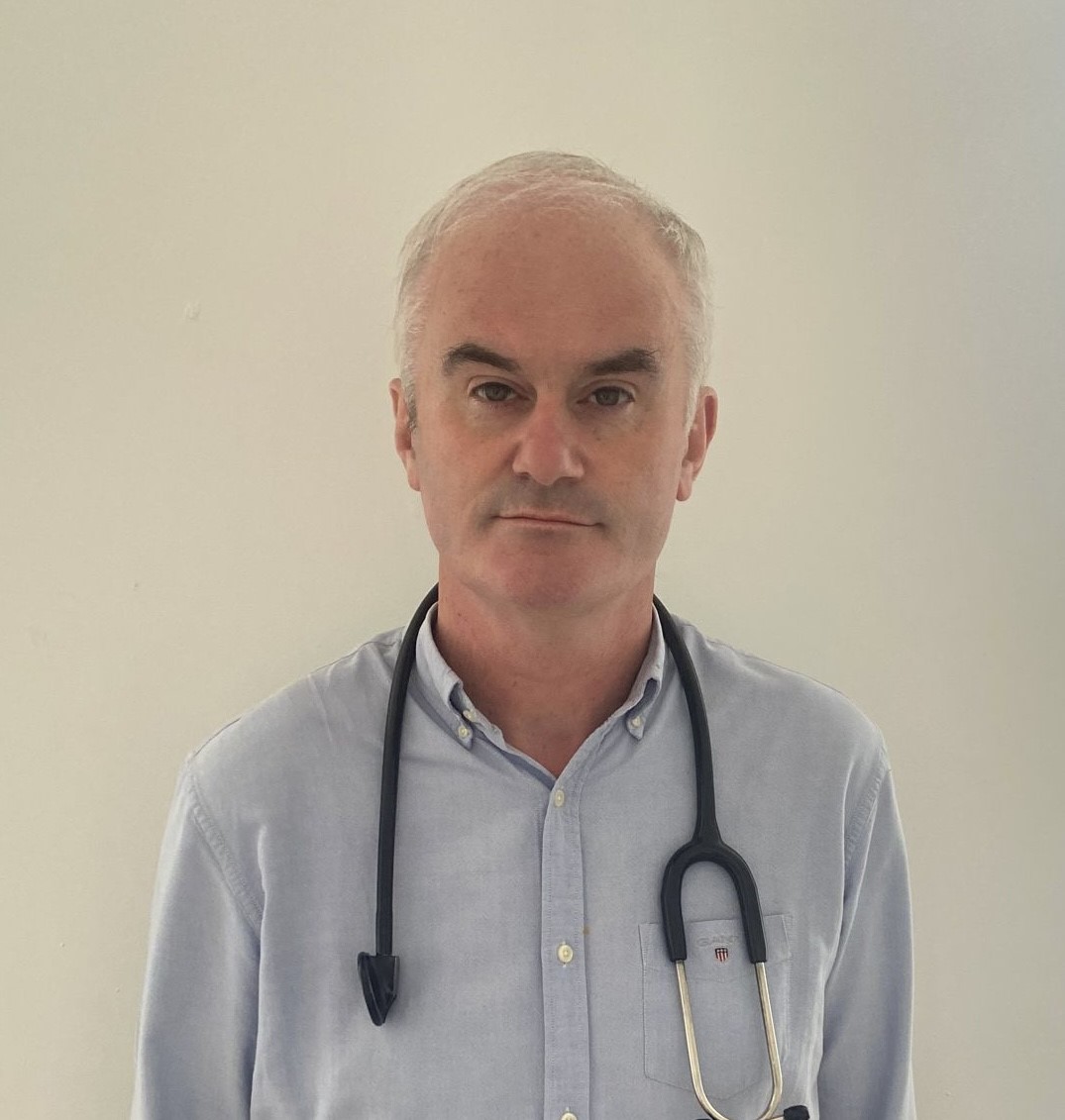
Connolly Hospital, Ireland

Dr Eamon Dolan
Connolly Hospital, Ireland
Dr Dolan is a stroke physician working in Dublin. His research interests include cardiovascular epidemiology, blood pressure monitoring, arterial stiffness, resistant hypertension and stroke. Dr Dolan completed his research thesis with Professor Eoin O’Brien. This fruitful collaboration has allowed Dr Dolan to develop an international profile in hypertension research.
In 2006 Dr Dolan took up a Fellowship in Stroke Medicine at Addenbrooke’s Hospital, Cambridge, and was appointed a consultant there in 2007. He returned to Connolly Hospital, Dublin, Ireland in April 2009 . Dr Dolan was an investigator on a number of studies including the Dublin Outcome Study (DOS), ASCOT ABPM, IDACO, ROX Control HTN and APOLO studies. He has published over 100 peer review papers in the areas of hypertension and stroke. He is a current board member on various national, international and journal advisory boards related to the area of hypertension.
Stroke secondary prevention: The benefits of exercise
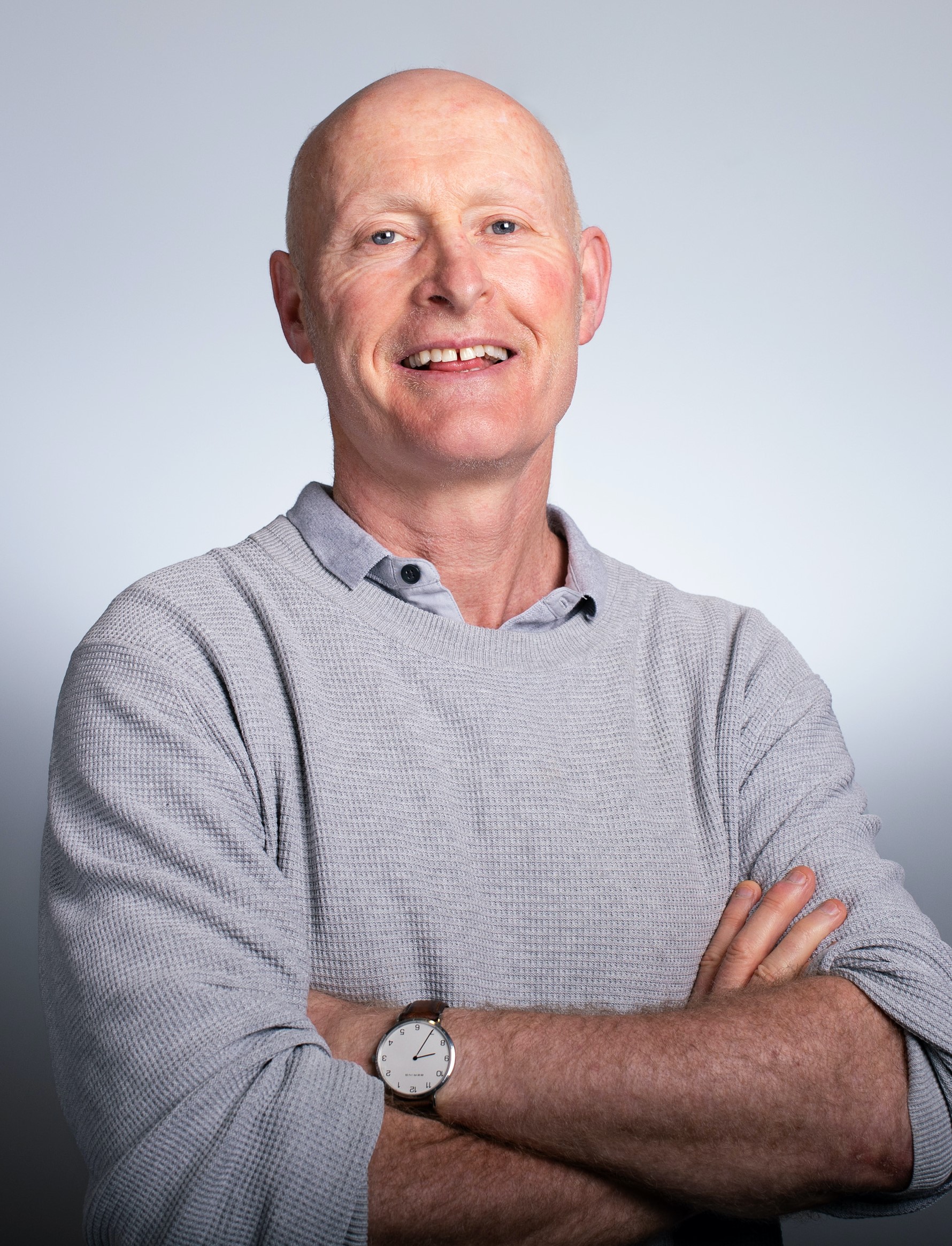
CEO, ExWell Medical

Dr Noel McCaffrey
CEO, ExWell Medical
Dr Noel McCaffrey is founder and CEO of ExWell Medical, a social enterprise that offers structured, medically-led exercise programmes in community settings to people with diverse chronic illnesses, on referral from health care professionals. He developed a Masters Programme in Sports and Exercise Medicine in University College Dublin in the early 1990’s before spending 12 years in Dublin City University where he led the growth of ExWell’s predecessor programme. In 2019 he left DCU to drive the national rollout of ExWell.
He is a consultant in Sports Medicine in Cappagh National Orthopaedic Hospital where he runs a musculoskeletal injury clinic and is also a Foundation Fellow of the Faculty of Sports and Exercise Medicine. He was named as a United Nations 2022 Healthy Ageing Top 50 World Leader
His main passion is ExWell and he is committed to the mission of making the service available through partnerships to everyone in Ireland and beyond who would benefit from it.
Poster exhibition
Overview
In addition to the planned talks we are also holding a poster exhibition showcasing submitted abstracts across two categories: Science and Services. 14 posters to be showcased in the services category (six highly commended), and 54 have been invited to display posters in the science category (18 highly commended).